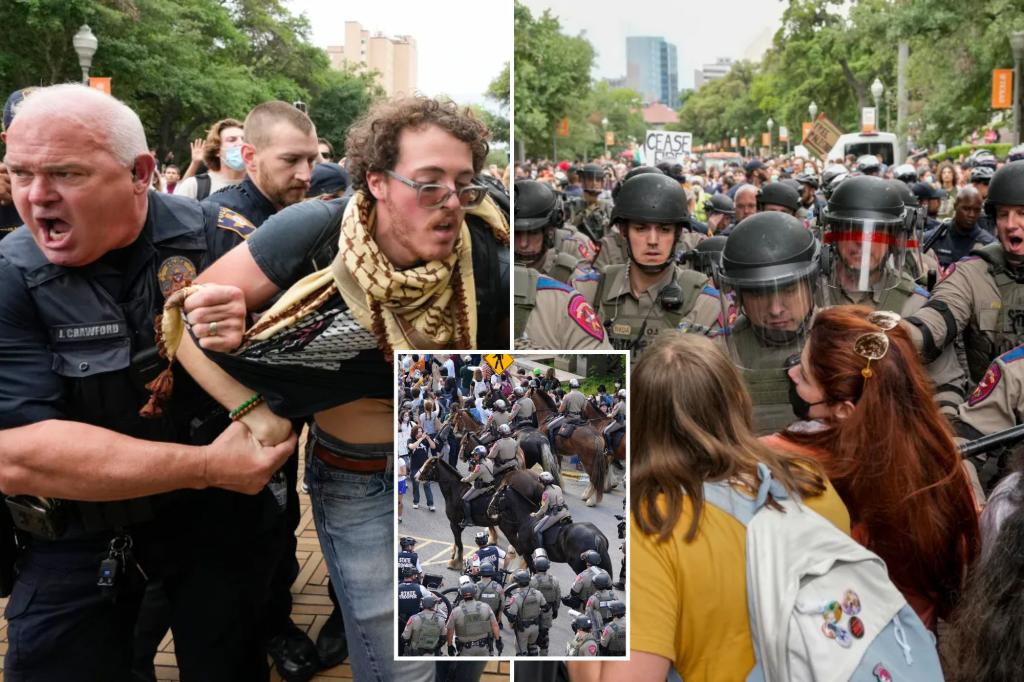Tensions between police and student protesters at the University of Southern California were peacefully resolved after protesters who had locked arms were detained without incident. The arrests at USC stood in contrast to the chaotic situation at the University of Texas at Austin, where aggressive police actions resulted in 34 arrests. The heavy police presence and arrests were deemed an overreaction by some students, leading to further demonstrations. Despite efforts to enforce rules, including at Harvard University, protests calling for schools to cut financial ties with Israel and divest from companies enabling the conflict continue to escalate across campuses nationwide.
At California State Polytechnic University, Humboldt, students remained barricaded inside a building for three days, leading to the school closing its campus through the weekend. Meanwhile, Harvard University faced a protest with tents set up on campus, and the Harvard Undergraduate Palestine Solidarity Committee suspended. The protests have caused concerns for some Jewish students who perceive the demonstrations as veering into antisemitism, leading universities, such as New York University and Yale University, to employ law enforcement measures to handle protesters. Columbia University managed to avert a confrontation between students and police following negotiations with protesters.
University President Minouche Shafik faced calls to resign from US House Speaker Mike Johnson, who warned that the National Guard might be necessary if the chaotic situation was not contained. Similarly, Columbia University faced rumors of the National Guard being brought in. While student perspectives on the protests vary, one graduate student at Columbia tried to bring attention to Israeli hostages still held by Hamas. Harvard law student Tala Alfoqaha, who is Palestinian, emphasized the need for more transparency from the university and expressed hope for divestment, disclosure, and the dropping of charges against students.
Police efforts to clear an encampment at Columbia resulted in over 100 arrests last week but inspired similar movements across the country. Tight security measures, including metal barricades and identification requirements, were implemented around campuses to control protests. Universities like Columbia have agreed with protest representatives to allow only students to remain at the encampment and to uphold respect for all individuals. Calls for charges to be dropped and future encampments to be allowed at the University of Minnesota were made by a group of professors. US Rep. Ilhan Omar attended a protest at the University of Minnesota and voiced concerns over students’ rights to speak out against the ongoing occupation of Palestine.












